From a nagging tickle in your throat to a painful hack, coughing can be an uncomfortable and annoying symptom. But before you reach for the drugstore cough medicine, Chinese herbs for cough may offer faster relief and longer-lasting benefits.
In Traditional Chinese Medicine (TCM), coughing is often seen as a sign of an imbalance in the body’s energy, or Qi. Chinese herbal medicine has been used for centuries to treat coughs and other respiratory ailments by addressing the underlying cause of the cough, rather than just suppressing the symptom.
Let’s explore the different types of cough, the most commonly used Chinese herbs for cough, and how they can help alleviate coughing and support your overall respiratory health.
Different Coughs, Different Treatments
One of the main differences between TCM and Western medicine is that the same “disease” is treated in different ways depending on the type of symptoms and each person’s constitution.
At a Western pharmacy, there may be a range of cough medicines, but the variations are usually related to brand, strength, or dose. But in TCM, a person with a dry, hot-type cough will be recommended an entirely different formula than someone with a wet, phlegmy, cold-type cough.
So, how does TCM treat different types of coughs? First, we consider if there is an environmental factor present, such as pathogenic wind, cold, heat, dryness, or dampness. Then, we also consider the person’s constitution. Are they weak or strong? Is their cough mild or severe? How is their overall immune function? These observations can help us determine which types of formulas are best for them. By asking yourself the same questions when you have a cough, you can determine which Chinese remedy for cough will help you best.
Here are a few of the most common cough types treated with Chinese herbs:
Dry Cough
A dry cough is often related to a lack of moisture or fluids in the body – this is what TCM practitioners call “yin deficiency.” A dry cough may also show signs of heat (like a sore throat, fever, or redness in the throat or face). In these cases, we need to use Chinese herbs that moisten yin, cool heat, and nourish the Lung system to stop the cough.
Cough with Phlegm
A phlegmy cough signals that there is dampness, or fluid accumulation, in the Lung. If we treated this like a dry cough and added moistening and nourishing herbs, it would only make this type of cough worse. Instead, we choose a formula that helps dry out the dampness, transform the phlegm, and improve qi flow through the Lung system to alleviate a phlegm-based cough.
Beyond that, we need to take into account the other symptoms to find out if we need a warming or cooling approach. Coughs with phlegm can either be hot in nature (with thick, yellow phlegm that is hard to cough up), or cold in nature (with thin, copious white phlegm). We either cool or warm the body to balance the system and clear the phlegmy cough.
Cough with Sore Throat
Sore throats typically indicate that there is too much heat (or inflammation) in the body. The scratchier the throat and the more painful the cough, the more heat needs to be cleared to feel relief. Moistening and cooling formulas are best for this type of cough.
Qi Deficiency Cough
“Qi deficiency” coughs are usually weak, annoying, frustrating coughs that come along with asthma or chronic lung conditions. These coughs are usually accompanied by other symptoms of qi deficiency, such as fatigue, shortness of breath, spontaneous sweating, and a weak voice. The cough is often triggered or worsened by exertion or stress.
The Best Chinese Herbs for Cough
Along with herbs that help balance a person’s constitution, there are also a few herbs that are particularly useful for treating coughs. These herbs directly impact the Lung system and support smooth-flowing qi, reduce phlegm, and promote immune health.
Loquat (Pi Pa Ye)
Loquat leaf is one of the most commonly used herbs for cough and is often included in Chinese cough syrups and herbal formulas. This herb is particularly helpful for coughs with phlegm. The loquat leaf contains healing compounds such as triterpenes, flavonoids, and polysaccharides, all of which have been shown to have antitussive (cough-suppressing) and expectorant (phlegm-loosening) effects.
Lily Bulb (Bai He)
The lily bulb is the edible bulb of the lily plant and has moistening, soothing effects on the respiratory system. Lily bulb is used in formulas that help treat cough when there is an underlying deficiency – especially yin or qi deficiency. These coughs can be weak, dry, or linger long after an illness has passed.
Fritillaria Bulb (Chuan Bei Mu)
Fritillaria is similar to lily bulb in that it cools and moistens the Lung and dissolves phlegm. But it is best used to address dry cough with scanty, difficult-to-expectorate, yellow phlegm in more robust individuals.
Cordyceps (Dong Chong Xia Cao)
Long before cordyceps was prized as a performance-enhancing medicinal mushroom, it was used to build qi, stop coughs, prevent asthma, and improve Lung function. Today, cordyceps are still used to help boost the Lung system and promote natural energy and stamina.
Chinese Cough Syrups & Chinese Cough Medicines
Because syrups easily coat the throat with healing medicinal compounds, Chinese cough medicine often comes in syrup form. The most popular Asian cough syrup is Loquat Cough Syrup. But, there are also herbal formulas that come in pill form to help suppress cough and restore the body to balance.
Pei Pa Koa – Loquat Cough Syrup
Pei Pa Koa is one of the most famous Chinese cough medicines – in fact, most Chinese homes carry some version of this in their medicine cabinets. This formula is an all-natural soothing syrup made from loquat, fritillaria bulb, and other natural herbal ingredients. It helps to ease sore throats, loosen and eliminate phlegm, and stop coughing. This cough syrup is balanced and can be used for most types of cough. Keep this syrup on hand to relieve sore throat, coughs, hoarseness, loss of voice, bronchitis, smoker’s cough, asthma, or dry mouth naturally.
-
Sale!
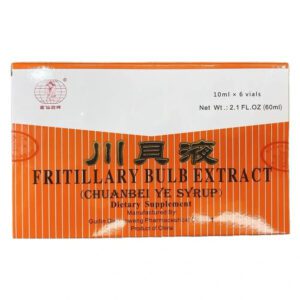 Chuanbei Ye (Fritillary Bulb Cough Syrup)
Starting at $8.50
Add to CartSelect options
This product has multiple variants. The options may be chosen on the product page
Chuanbei Ye (Fritillary Bulb Cough Syrup)
Starting at $8.50
Add to CartSelect options
This product has multiple variants. The options may be chosen on the product page
Sanshedan is a Chinese cough medicine that supports healthy Lung function. It moistens dry, itchy, “sandy” sore throats, calms wheezing, improves shortness of breath, and helps relieve bronchitis.
Do you tend to get a cough every time you catch a cold? Keep Gan Mao Ling on hand and take at the first tickle of a sore throat or cough. This classic formula has been used to stop colds in their tracks and help prevent a cough from developing.
If you tend to cough up thin, watery, clear or white sputum, a formula like Xiao Qing Long Tang may help. This formula helps to fight coughs with a cold or damp nature by using warming, transforming, and restorative herbs. Choose Xiao Qing Long Tang if you also feel cold, have swelling or edema, or can’t breathe when you lie flat.
Ping Chuan Wan is an effective herbal formula for chronic coughs. This formula helps restore Lung health after a lingering illness or chronic shortness of breath, and is best for those with a weak or deficient constitution.
This formula helps soothe bronchial/chest discomfort and supports a healthy respiratory system. Choose Cough Ease if you have a minor cough with dryness and irritation in your respiratory tract.
Ding Chuan Wan (Clear Mountain Air Teapills)
For those who struggle with incessant coughs related to asthma (rather than a cold or flu), this formula can help. It uses herbs that calm labored breathing, bronchial spasms, and coughs (especially with yellow or green phlegm). Ding Chuan Wan may also be helpful for other chronic lung conditions with phlegm, such as emphysema and bronchitis.
Chinese Cough Drops
Chinese herbal cough drops are a natural way to suppress a cough and improve your Lung health. Swap your traditional cough drops (which tend only to numb the throat) with these medicinal drops that also help resolve the cause of your cough.
-
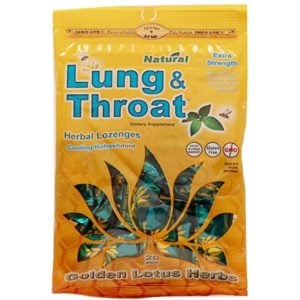 Lung and Throat Lozenges by Golden Lotus Herbs
Starting at $9.99
Add to CartSelect options
This product has multiple variants. The options may be chosen on the product page
Lung and Throat Lozenges by Golden Lotus Herbs
Starting at $9.99
Add to CartSelect options
This product has multiple variants. The options may be chosen on the product page
Organic Lung & Throat Lozenge by Golden Lotus
Clear the lungs and sinuses with an all-natural Chinese herbal cough drop. The herbs in these lozenges support healthy respiratory system functions and clear mucus and swelling from the nose and sinuses. Menthol makes these lozenges cooling and aromatic, while honey soothes the throat and adds natural sweetness.
Golden Throat Lozenges use the herbal power of Momordica fruit (luo han guo) to cool, soothe, and hydrate the throat and Lung system. This not only helps ease a sore throat and dry cough, but can also improve dry mouth and bad breath.
Chinese Herbal Tea for Cough
When you’re battling a nagging cough, there’s nothing more soothing than a cup of tea. What’s even better is a cup of Chinese herbal tea that uses medicinal herbs to not just calm your cough, but stop it from the root.
-
Sale!
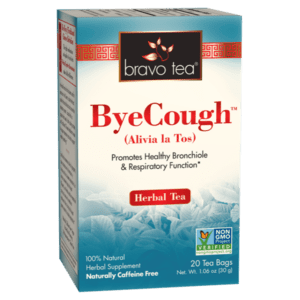 Bye Cough Tea – by Bravo Tea
Starting at $6.99
Add to CartSelect options
This product has multiple variants. The options may be chosen on the product page
Bye Cough Tea – by Bravo Tea
Starting at $6.99
Add to CartSelect options
This product has multiple variants. The options may be chosen on the product page
Bye Cough Tea is a TCM herbal tea blend known for its ability to calm the throat, nourish the respiratory system, and soothe the bronchial tract. Loquat leaf (pi pa ye) is the main herb in this formula and is used to alleviate upper respiratory tract discomfort and promote healthy breathing.
Loquat and mulberry tea uses a powerful extraction of loquat leaves, mulberry bark, and other Chinese herbs for cough to help soothe irritation in the throat and prevent coughing. Even if you don’t currently have a cough, drinking this tea during allergy seasons in spring and autumn can help prevent sinus and throat irritation that leads to Lung weakness and lingering coughs.
CoughOff Herb Tea by Health King is an herbal blend designed to support healthy Lung function. This tea helps open the airways to relieve shortness of breath, wheezing, coughing, and other discomforts related to a distressed upper respiratory system.
Magic 9 Herbal Cough Formula Herbal Tea
Got a persistent cough or a cold that just won’t go away? This tea helps nourishes Lung yin, cool fluids in the body, and clear the heat that builds up when a cough or cold lingers too long. It also helps to soothe the throat, break up chest congestion, and improve breathing.
Stop Coughs Naturally with Chinese Herbs for Cough
Whether you want to stop or prevent coughs and colds, ease a sore throat, or simply improve your breathing, Chinese herbs can be a valuable tool to help you support your respiratory system and boost your overall well-being. But, finding the right formula for your specific cough symptoms is the key to getting the best results possible! Shop our full collection of Chinese herbs for colds, coughs, and flu to find the best formula for your Lung health.


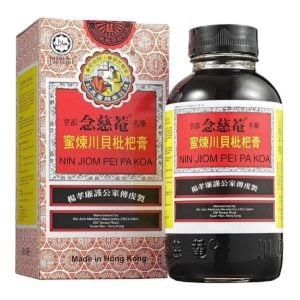 Pei Pa Koa – Loquat Chinese Cough Syrup – (300ml /10fl oz)
Pei Pa Koa – Loquat Chinese Cough Syrup – (300ml /10fl oz)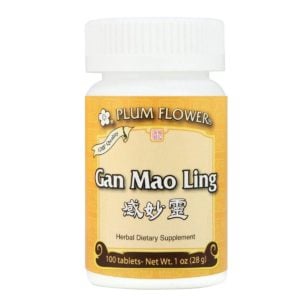 Plum Flower – Gan Mao Ling
Plum Flower – Gan Mao Ling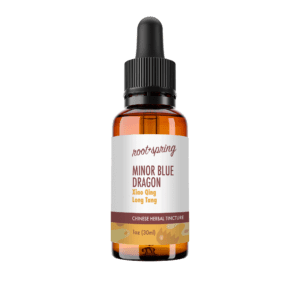 Xiao Qing Long Tang (Minor Blue Dragon) – Liquid Extract (Tincture)
Xiao Qing Long Tang (Minor Blue Dragon) – Liquid Extract (Tincture)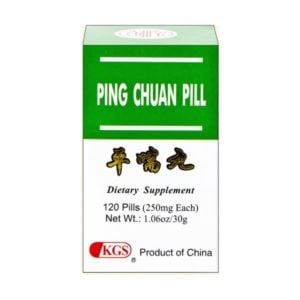 Ping Chuan Wan – Ping Chuan Teapill – Lanzhou Traditional Herbs (KGS)
Ping Chuan Wan – Ping Chuan Teapill – Lanzhou Traditional Herbs (KGS)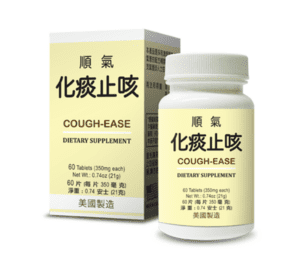 Cough Ease Cassia Herbal Supplement – by Lao Wei
Cough Ease Cassia Herbal Supplement – by Lao Wei
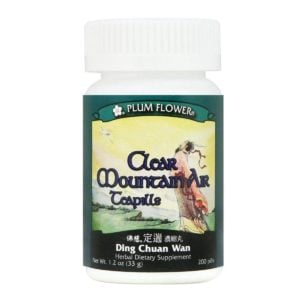 Plum Flower – Clear Mountain Air (Ding Chuan Wan)
Plum Flower – Clear Mountain Air (Ding Chuan Wan)
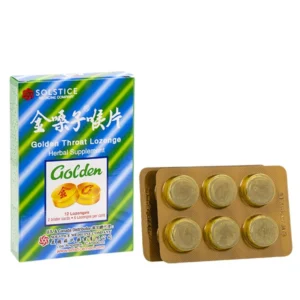 Golden Throat Lozenges (Chinese Cough Drops)
Golden Throat Lozenges (Chinese Cough Drops)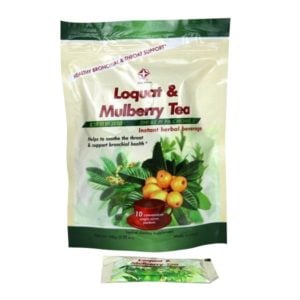 Star Ring – Loquat and Mulberry Tea – Zhi Ke Pi Pa Chong Ji – (OUT OF STOCK)
Star Ring – Loquat and Mulberry Tea – Zhi Ke Pi Pa Chong Ji – (OUT OF STOCK)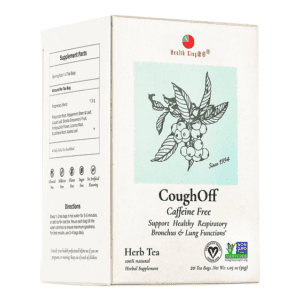 CoughOff Herb Tea – by Health King
CoughOff Herb Tea – by Health King
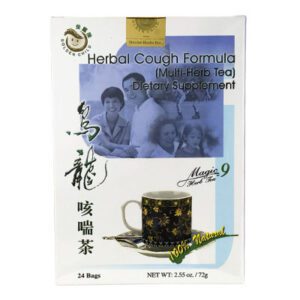 Magic 9 Herbal Cough Formula Herbal Tea – (OUT OF STOCK)
Magic 9 Herbal Cough Formula Herbal Tea – (OUT OF STOCK)